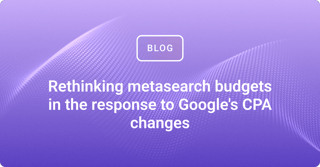On July 1st, California will introduce Senate Bill 478, also known as the California Junk Fee Law. This aims to end the practice of “drip pricing”, where hotels or other hospitality businesses advertise low rates but add mandatory extras, like resort fees, later on in the process.
Under this new law, businesses will have to include all non-governmental fees in their advertised room rates, so customers know the true costs of their stay upfront and won’t have any surprises at checkout. Keep reading to learn more about its implications for hotels, and steps Triptease would recommend taking ahead of the 1st of July.
What the new hotel laws and regulations in California mean for hoteliers
Change is never easy, but this one definitely comes with a silver lining.
- Improved customer trust: At the heart of it, the aim of this legislation is to promote transparency between hotels and guests. This is incredibly important for hotels looking to increase direct bookings to their website. By making your pricing clear-cut, you can signal to customers that you value their time and consideration, and that you feel that your prices (all mandatory fees included) are absolutely worth it.
- Fairer competition: Although making operational changes to adapt to new regulations can be challenging, it’s also an opportunity to review your pricing strategy and booking policies to make sure that you’re aligned with other players in the market. The transparent pricing mandate could also be key in helping hoteliers to maintain parity with 3rd party partners, especially because OTAs and short-term rentals are notorious for advertising cheaper prices upfront and tacking on additional fees in the booking process.
How to prepare for the rollout of SB 478
We appreciate that every hotel has unique systems and processes in place, so this approach will be be different for everyone. But here are a few key things all hoteliers should aim to do before July 1st:
- Make sure that your CRS and other internal systems are updated to comply with the new regulations.
- Check that your Google price feeds are set up correctly, with your fees grouped separately to government taxes (which don't need to be displayed upfront).
- Make sure that any existing advertising or marketing campaigns reflect “all-in” prices
- Evaluate the market to see how your prices line up with those of your competitors, and whether any pricing strategy changes should be implemented.
- Train anyone in marketing or revenue management to ensure adherence going forward.
Are these laws being enforced in any other states?
While currently this law is specific to California, other states are considering enacting similar legislation. So even if you’re not operating in California, it could be a good idea to think about how you can comply with these kinds of laws in the future. Plus, whether you need to comply ASAP or not, it’s a good time to think about your current pricing and whether it feels transparent and fair to guests on your site.
New regulations - in the US and worldwide
Triptease has been working for over a decade to help hoteliers adapt to changes in the hotel booking landscape, so we’re here to make sure that you feel prepared for anything that comes your way. Join us on the Tuesday 2nd July for our webinar on the EU Digital Markets Act, and its impact on hoteliers. Bring your questions and concerns around SB 478, the DMA, or all things direct booking. Our experts will do their best to help!
Genevieve is a product marketing manager at Triptease.

![[Video] What is commission bidding (CPA) and why is Google removing it?](https://www.triptease.com/hs-fs/hubfs/Resources%20-%20feature%20images/Feature-Image_%5B%5BVideo%5D%20What%20is%20commission%20bidding%20%28CPA%29%20and%20why%20is%20Google%20removing%20it_%5D.png?width=320&height=320&name=Feature-Image_%5B%5BVideo%5D%20What%20is%20commission%20bidding%20%28CPA%29%20and%20why%20is%20Google%20removing%20it_%5D.png)



![[Video] What is Target Return on Ad Spend (tROAS)?](https://www.triptease.com/hs-fs/hubfs/Resources%20-%20feature%20images/Feature-Image_%5B%5BVideo%5D%20What%20is%20Target%20Return%20on%20Ad%20Spend%20%28tROAS%29_%5D.png?width=320&height=320&name=Feature-Image_%5B%5BVideo%5D%20What%20is%20Target%20Return%20on%20Ad%20Spend%20%28tROAS%29_%5D.png)
![[WATCH THE WEBINAR] Metasearch: What hotels get wrong](https://www.triptease.com/hs-fs/hubfs/Resources%20-%20feature%20images/Feature-Image_%5B%5BWATCH%20THE%20WEBINAR%5D%20Metasearch_%20What%20hotels%20get%20wrong%5D-1.png?width=320&height=320&name=Feature-Image_%5B%5BWATCH%20THE%20WEBINAR%5D%20Metasearch_%20What%20hotels%20get%20wrong%5D-1.png)
